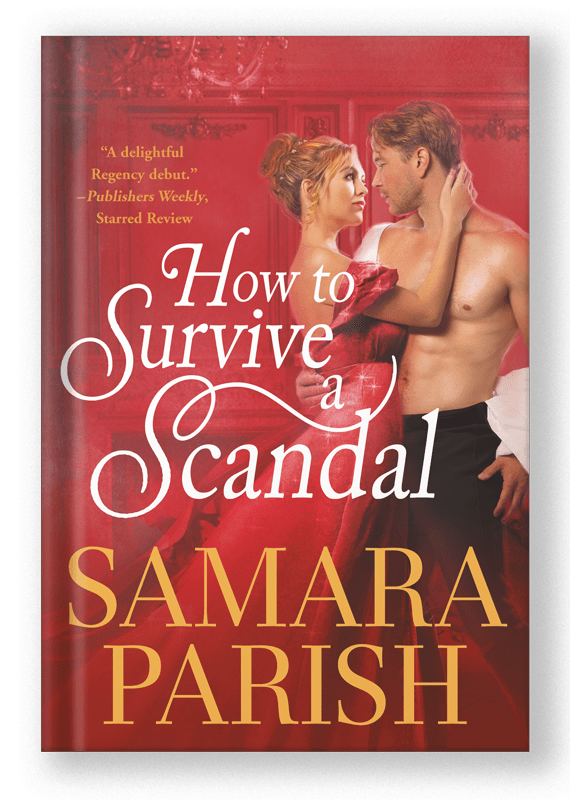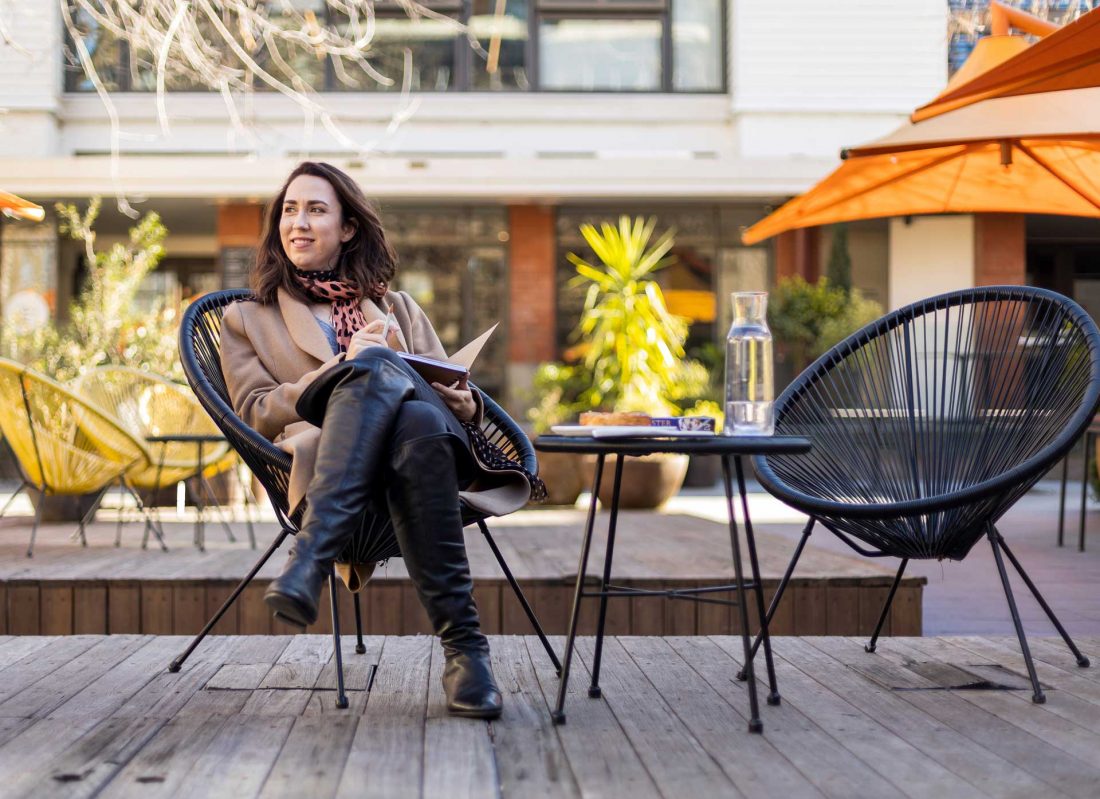Behind the scenes of How to Survive a Scandal

What was the inspiration for the story?
I wanted to write a Christmas short story that I could self-publish, so I just started freewriting a scene with no planning at all. I had this scene where Benedict stumbles across a carriage and there was a girl inside. Then I thought ‘what if he knows her?’ ‘what if he knows her and doesn’t like her?’ In that original draft of the scene, Benedict was Scottish and an aristocrat. Then I wrote the part where they’re caught together and I thought, ‘what could make this worse for Amelia?’ that’s when I realised Benedict was a commoner and not part of the ton. From there, I worked out what I wanted the theme of the book to be and built the characters around that.
After that, it was a lot of brainstorming with my writing friends. I’m a sort of plotser. I like to think I know where I’m going, but often the story takes me in a whole other direction, and that’s okay!
What is the key theme and/or message in the book?
What’s become important to me in my 30s is personal growth. Amelia is a young girl who has never really questioned the attitudes presumptions of society as anything other than fact. The events of this novel force her smack bang into her own ignorance and prejudices.
We all have our own prejudices. How to Survive a Scandal isn’t about any one kind in particular. It can be challenging to have these pointed out and it’s hard work to overcome them. Sometimes we do well at it and other times we fall back a little.
What do you hope your readers take away from this book?
That it’s okay to be wrong, as long as you can admit it and make steps to change. None of us is perfect and if we’re too scared to examine our thoughts and behaviours because we don’t want to feel the sense of shame at being wrong, then we’ll never develop as people.
What was the biggest challenge writing this book?
Learning how to write a book! Honestly. It took me three years to go from first word to ready to submit to an agent and in that time I took a lot of courses and went to a lot of workshops. I entered the story into plenty of Romance Writers of Australia courses and incorporated their feedback into the book.
Amelia was probably the biggest challenge. In my early drafts, she was even more snarky than she is now. The inspiration for her was a guy called Chad on season 12 of The Bachelorette. He said the most awful things, but he was so freaking funny that I couldn’t help but like him.
I loved Amelia and her acidic humor, but judges in competitions HATED her. I had to put a lot of work in to make her more relatable so that people wanted to read her story. I knew that she would grow into someone that readers would love, but I had to get her to a point where readers would give her a chance!
If you had to describe the characters in three words, what would those three words be?
Amelia – arrogant, vulnerable, wise (at the end).
Benedict – honorable, kind, grudge-holding
How much research did you do while you were writing?
Research can be such a rabbit hole. You search for the answer to one question and that sets off a dozen other things to research. I learned early on that if I actually wanted to get words written, I needed to write all my research questions down and look up the information later. When it came time to do my second draft, there was a lot of “insert kind of food here”.
What was the coolest thing you found out when you were researching?
That you could stop a steam train with a penny! The trains are so heavy and it takes a lot of energy to get them moving, so if there’s a penny wedged between the front wheel and the track, it can provide too much resistance for the train to overcome—but if you put a penny in front of a moving train, it’ll be flattened.
Did you enjoy learning about steam engines?
I’m an ex-science teacher, so I actually found it fascinating. When I was at a second-hand book fair, I found an old, old book about steam engine design. It felt like fate. I had to get my husband (he’s an engineer) to help me understand some of it and then I had to force myself not to put every bit of that research into the book.
If your book was to be made into a movie, who are the celebrities that would star in it?
On my Pinterest board for this book, I had images of Grace Kelly and Chris Hemsworth. Because seriously, how hot is Chris Hemsworth? Since I couldn’t have Grace Kelly as Amelia, I’d love someone Amanda Seyfried.
From the moment she popped into my head, Fiona was Rose Leslie. I was watching A LOT of Game of Thrones at the time. Edward was harder to pin down. I’ve still never found the perfect inspiration picture of him. He’s pretty—he has Zac Efron’s eyes—but I haven’t seen anyone who has perfectly encapsulated the duke.
What happens between Benedict and his grandfather? Do they ever work things out?
Benedict takes his responsibilities very seriously, so he’s going to have a relationship with his grandfather so that he can learn what he needs to in order to fulfil his role in society. Over time, he’ll learn to forgive. He won’t forget and they’re never going to be close, but he’ll be able to let go of his anger. Holding on to that kind of negative emotion makes it hard to be truly happy.
Will there be a sequel?
Yes! Kind of. You’ll see Amelia again in Fiona and Wilde’s story—How to Deceive a Duke, which will be out in January 2022! And they will likely make an appearance in John’s story, which will be later that year.



